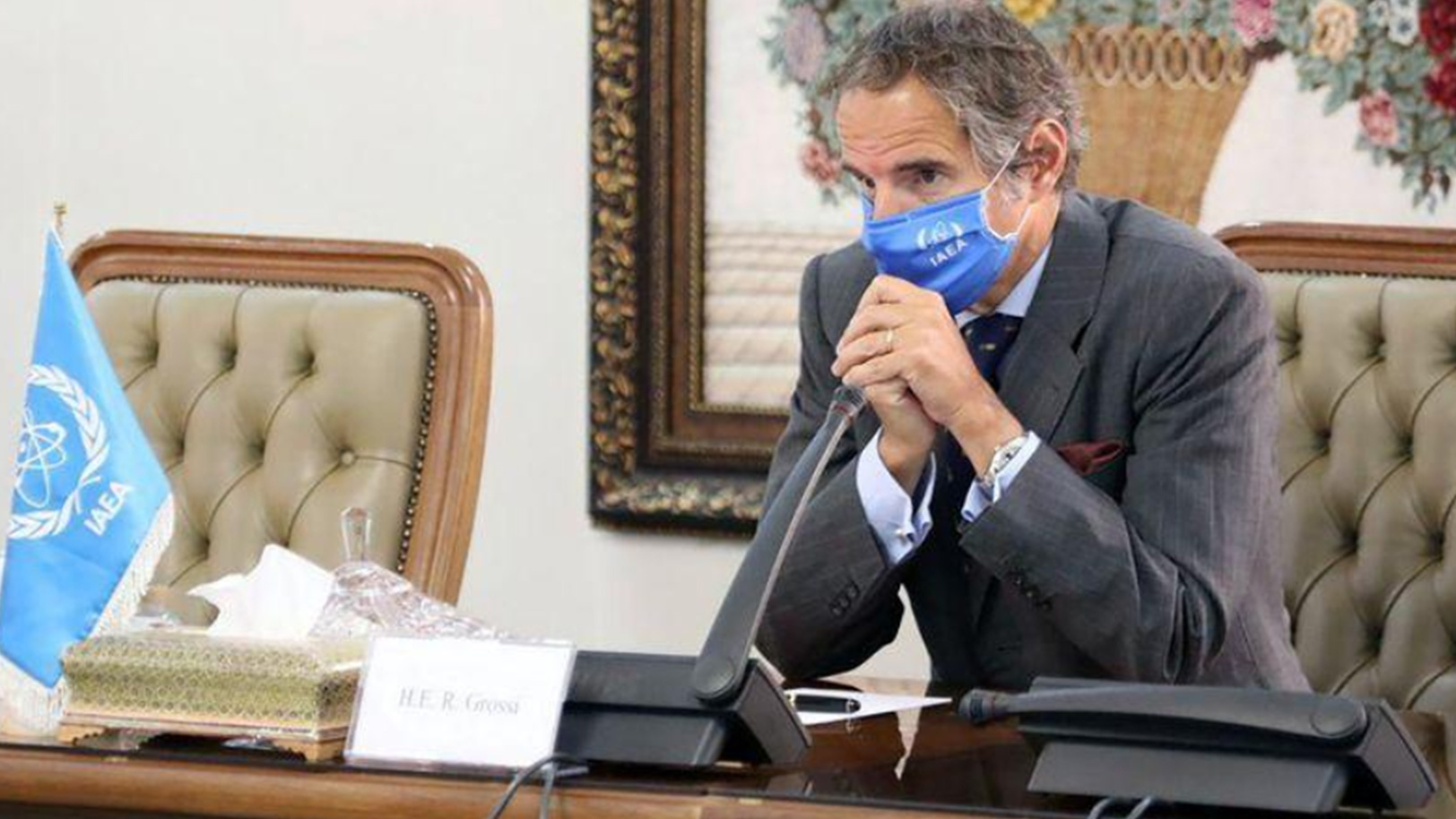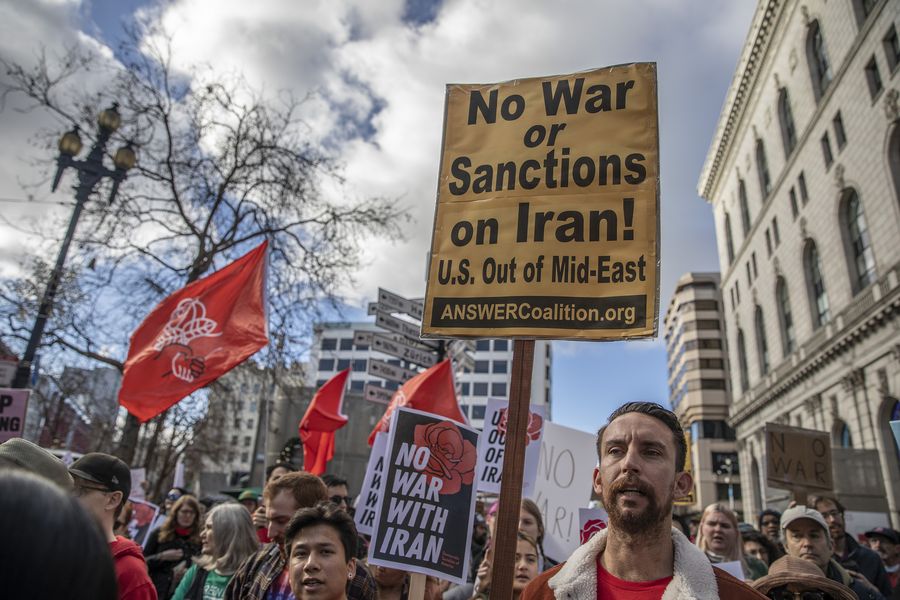Iran's nuclear body said it held "constructive" talks on Tuesday with the visiting head of the International Atomic Energy Agency (IAEA) amid tensions over a U.S. bid to reimpose UN sanctions.
The trip is Rafael Mariano Grossi's first to the Islamic republic since the Argentine took the helm of the Vienna-based UN agency last year. It comes more than two years after U.S. President Donald Trump pulled out of a landmark international agreement that put curbs on Iran's nuclear program in exchange for sanctions relief.
"A new chapter has started with this visit," Iran's top nuclear official Ali Akbar Salehi said after the meeting, quoted by state news agency IRNA.
"Today's talks were constructive," he added. "It was decided that the agency continue its work professionally and independently and Iran, too, act in the framework of its commitments."
Grossi, for his part, said the agency's approach towards Iran was not politically motivated, Iran's Students News Agency ISNA reported on Tuesday, as he pushes for inspectors access to suspected former atomic sites.
"There is no political approach towards Iran ... There are issues that need to be addressed ... this does not mean a political approach towards Iran," Grossi said after meeting Salehi. Later he is due to meet Foreign Minister Mohammad Javad Zarif.
00:36

In a statement before the meeting, the nuclear body had said Iran expects the IAEA to "maintain neutrality in any situation and refrain from entering international political games."
The UN agency's board of governors had passed a resolution in late June put forward by European states, urging Tehran to provide inspectors access to two sites to help clarify whether undeclared nuclear activity took place there in the early 2000s.
According to the spokesman for Iran's nuclear body, one of the two is located in central Iran between Isfahan and Yazd provinces, and the other is close to Tehran.
He hinted in a Monday interview with Iran's Al-Alam television network that access may be granted if the agency does not demand more.
"To prevent enemies from exploiting the situation... we are seeking ways to alleviate our concerns and say there is access, see there's nothing," Behrouz Kamalvandi was quoted as saying.
"But this issue must be resolved once and for all... meaning that they would not demand afterwards to inspect somewhere else in the same way," he added.
Access to the sites has been blocked for months, prompting a diplomatic row.
Iran has argued that the IAEA's access requests are based on allegations from Iran's arch-enemy Israel and have no legal basis.
Read more:
U.S.-Europe row as Pompeo triggers start of Iran sanctions 'snapback'
Wang Yi says U.S. demand for snapback on Iran 'completely unreasonable'

People attend a protest against U.S. sanctions on Iran and the killing of high-profile Iranian commander Qassem Soleimani in San Francisco, the U.S., January 4, 2020. /Xinhua
People attend a protest against U.S. sanctions on Iran and the killing of high-profile Iranian commander Qassem Soleimani in San Francisco, the U.S., January 4, 2020. /Xinhua
Grossi arrived in Iran on Monday, Iranian state TV reported, as he seeks access for inspectors to two suspected former atomic sites after a months-long standoff between Tehran and the body.
Tehran said Grossi's visit would "strengthen ties and build trust" between Tehran and the IAEA. However, in a statement on Saturday, Grossi said he would address "the outstanding questions, in particular, the issue of the access."
Grossi's visit came after Washington began the process on Thursday of activating a controversial mechanism aimed at restoring UN sanctions against Iran, which other parties to the deal – Russia, China, Britain, France and Germany – have not supported.
Zarif said Iran was being transparent and cooperative with the IAEA, and Grossi's visit to Iran "has nothing to do with the trigger mechanism," the RNA reported on Monday.
"As long as the IAEA moves based on impartiality, independence and distances itself from political pressure of another countries, there will be no problems between the IAEA and Tehran," Iran's Foreign Ministry spokesman Saeed Khatibzadeh told reporters, state TV reported.
A senior Iranian nuclear official said on Sunday that the IAEA wanted access and inspection of "two places," one near Tehran and the other near the central city of Isfahan.
In 2018, Trump pulled the United States out of the Iran nuclear deal and reimposed some sanctions that have crippled Tehran's economy. Iran has retaliated by reducing compliance with the pact's restrictions.
(With input from Reuters and AFP)
(Cover: International Atomic Energy Agency (IAEA) Director General Rafael Grossi wears a mask during a meeting with Head of Iran's Atomic Energy Organization Ali-Akbar Salehi, in Tehran, Iran, August 25, 2020. /Reuters)